Abstract
A sample of 708 women, who by sociodemographic characteristics are high risk to breast cancer, were interviewed by telephone about their knowledge, attitude, and practice of breast self-examination (BSE). Reported frequency of BSE, knowledge of BSE and breast cancer, and BSE attitude in this sample are comparable to data reported by others. This report analyzes the associations between the frequency of a breast self-examination practice and the variables, age, education, detection confidence, social influence, modesty, preventive health behaviors, and memory. These relationships are discussed and several new hypotheses are proposed. Since the data were collected retrospectively, they are not able to describe causal relationships.
Full text
PDF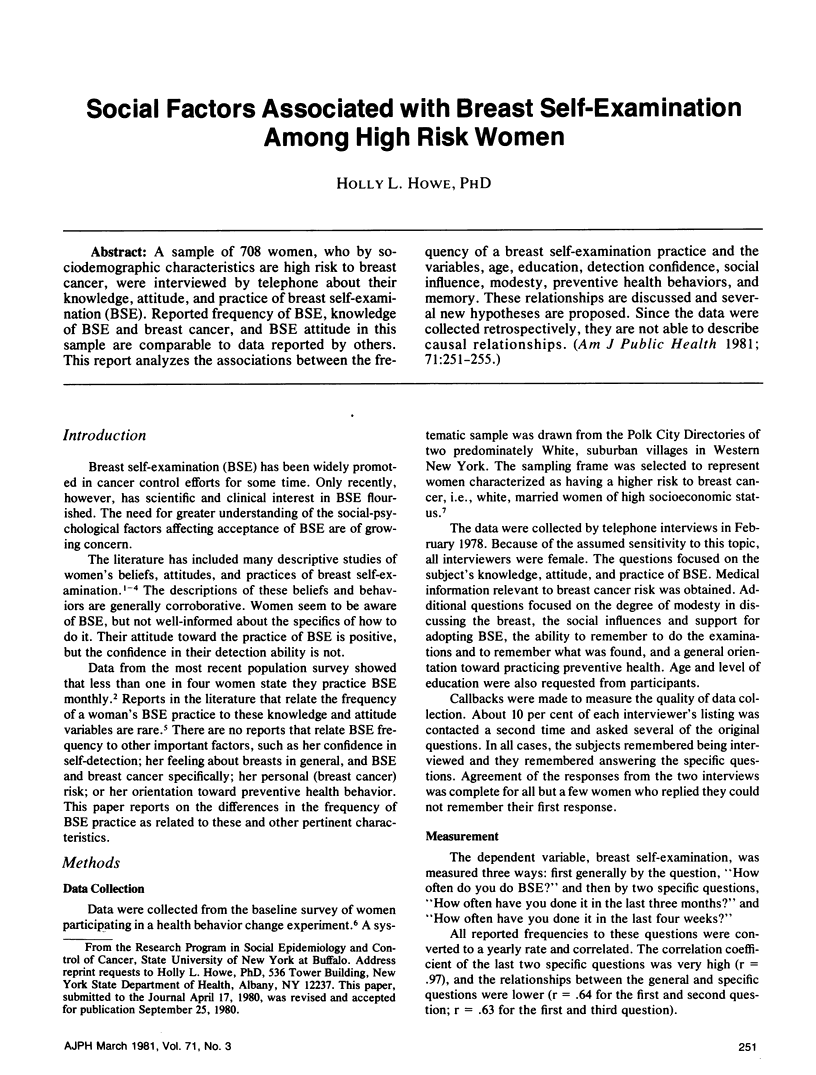
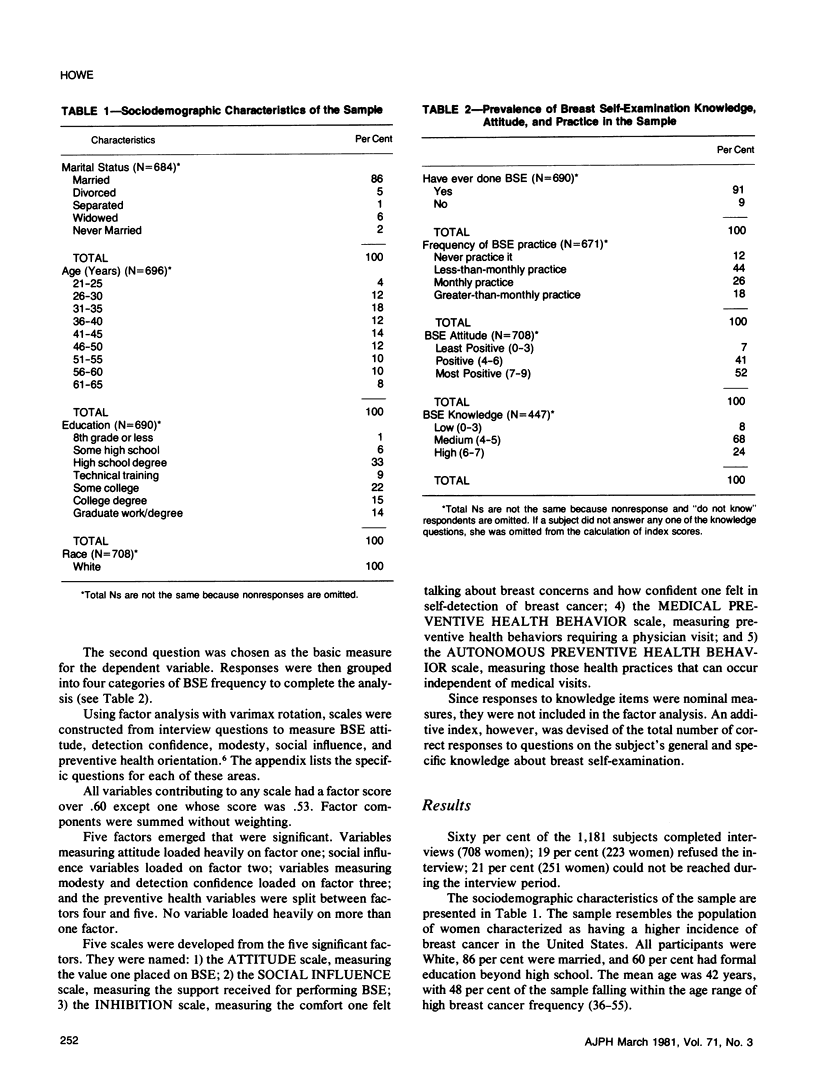
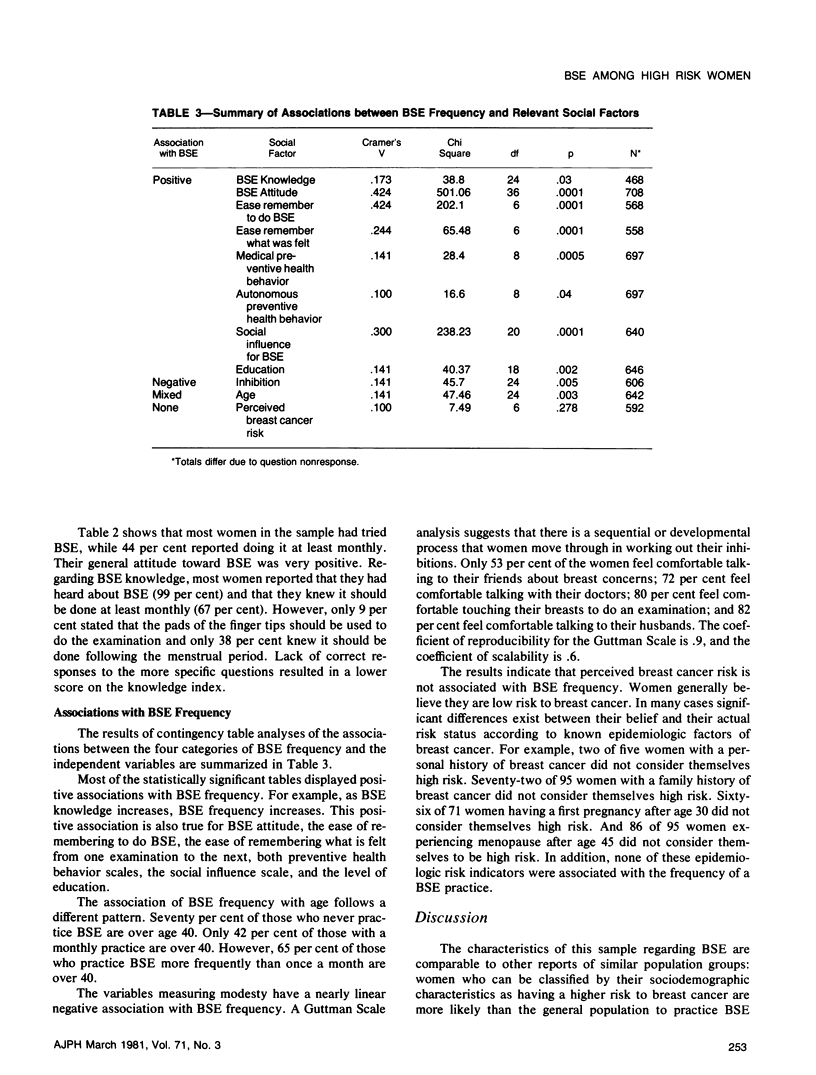
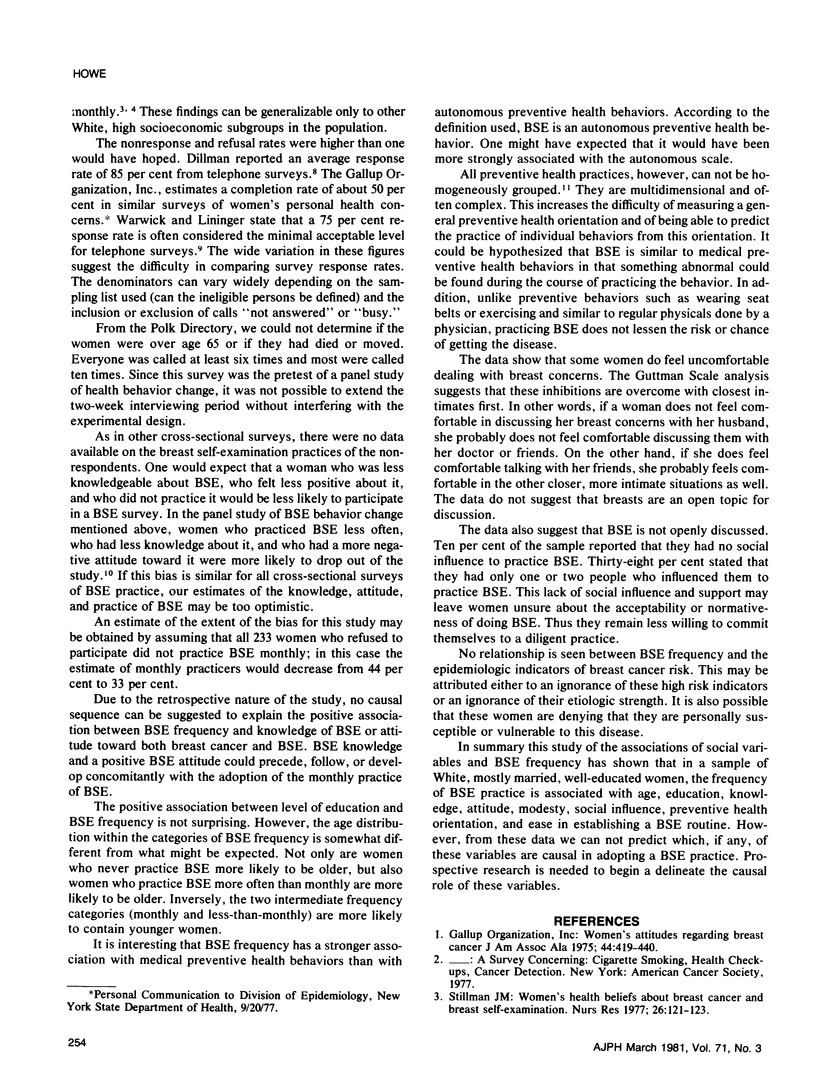
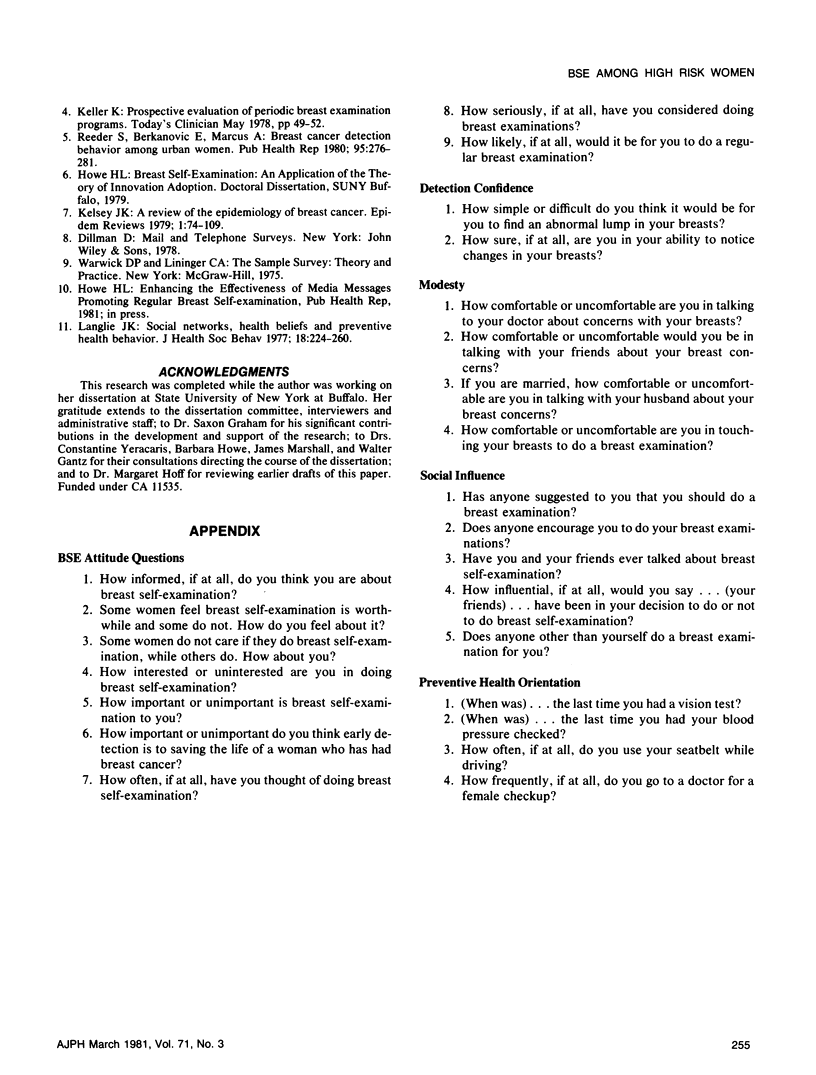
Selected References
These references are in PubMed. This may not be the complete list of references from this article.
- Langlie J. K. Social networks, health beliefs, and preventive health behavior. J Health Soc Behav. 1977 Sep;18(3):244–260. [PubMed] [Google Scholar]
- Reeder S., Berkanovic E., Marcus A. C. Breast cancer detection behavior among urban women. Public Health Rep. 1980 May-Jun;95(3):276–281. [PMC free article] [PubMed] [Google Scholar]
- Stillman M. J. Women's health beliefs about breast cancer and breast self-examination. Nurs Res. 1977 Mar-Apr;26(2):121–127. doi: 10.1097/00006199-197703000-00016. [DOI] [PubMed] [Google Scholar]


